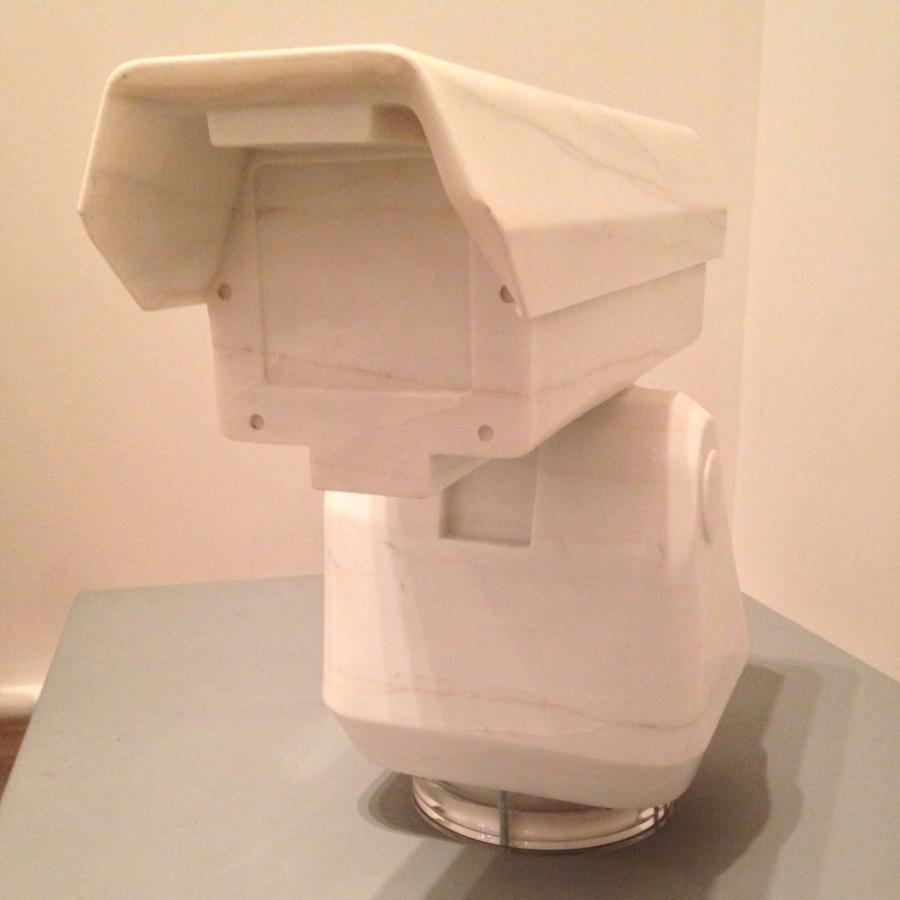
New York, USA
In 2010, in response to house arrest and the police hanging CCTV outside his studio, the dissident sculptor, Ai Weiwei (pronounced way-way), created a set of fourteen surveillance cameras hand-carved from single blocks of white marble from the Fangshan imperial quarries near Beijing, which served emperors and was used in Mao Tse Tung's mausoleum. Ai Weiwei bought a share in the quarry.
Number 8 of the series from a U.S. private collector consigned by Galerie Urs Meile, Lucerne, was sold for $402,000 on 29th October at Heritage Auctions in New York, a new online auction house for prestige art works.
Modeling the sculpture on a surveillance camera illustrated Weiwei's move from Duchamp readymades to conceptual art. The French artist was a clear reference in Ai's work in, for example, Bicycle Wheel (1913) and the ongoing series Forever (2003-) - sculptures in which Ai removed the primary function of the Forever bicycles, mass-produced in Shanghai since 1940 but increasingly rare - which he used to ride when he was a younger. Duchamp not only highlighted the primacy of the artist in defining what is art, but also defied the assumption that art must be beautiful.
Heritage Auctions: Ai Weiwei (b. 1957). Surveillance Camera, 2010. Marble.
Story Type: Auction Report
